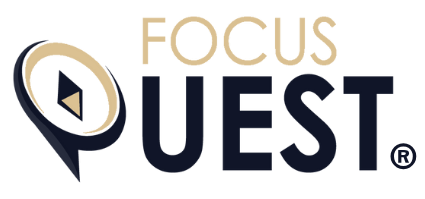Networking 101: How Students Can Build Meaningful Career Connections Online
- October 8, 2025
Share on Social Media
Why Online Networking Matters More Than Ever
Remote Opportunities and Global Job Markets
In today’s world, more companies than ever are hiring remotely. This shift has unlocked global opportunities, but it also means students need to stand out in a much larger digital pool. Online networking allows you to connect with potential mentors, recruiters, and professionals worldwide, without leaving your room.
Building Visibility Before Graduation
You don’t need a diploma to start building your professional identity. In fact, students who begin networking in their first or second year often land better internships, job offers, and mentorships by graduation.
What Makes a Career Connection “Meaningful”?
Quality vs. Quantity in Professional Networks
It’s tempting to add hundreds of people on LinkedIn, but real success comes from quality over quantity. A meaningful connection is someone you’ve had a conversation with, learned from, or supported, and who knows a bit about you in return.
The Power of Intentional Engagement
Liking posts is a start, but real engagement means commenting thoughtfully, reaching out with purpose, or asking insightful questions. That’s how relationships grow, even online.
Laying the Groundwork: Build Your Online Presence First
Clean Up Your Social Media
Your digital footprint matters. Employers do check social profiles. Remove or hide anything unprofessional, and be intentional about what you post.
Create a Polished LinkedIn Profile
LinkedIn is the world’s largest professional network. It’s your digital résumé, and more. Create one even if you’re still in school.
LinkedIn 101: Create a Student Profile That Stands Out
Crafting a Strong Headline and Summary
Your headline doesn’t have to be “Intern at Company X.” Try:
“Computer Science Student | Aspiring Software Engineer | Passionate About AI & Innovation”
Your summary should include:
- Your goals
- Your studies or achievements
- A sentence about what drives you
Highlighting Coursework, Projects, and Skills
Don’t wait for job experience, use your class projects, teamwork, or volunteer work to showcase what you’ve learned.
Adding Certifications and Extracurriculars
LinkedIn allows you to list certificates, languages, awards, clubs, and more. These build credibility and give others something to ask you about.
How to Grow Your LinkedIn Network Strategically
Who to Connect With First
Start with:
- Classmates
- Professors
- Internship supervisors
- Alumni from your school
- People in roles you admire
Using Custom Messages in Requests
Avoid sending blank invites. Instead:
“Hi [Name], I’m a student at [Your School] exploring [Your Field]. I admire your work at [Company] and would love to connect!”
Following Industry Pages and Thought Leaders
Follow companies, career coaches, or professionals in your field to stay updated and engage with their content.
LinkedIn Engagement Tips for Students
Commenting on Posts Meaningfully
Instead of “Great post!”, try:
“Thanks for sharing this! As a marketing student, I found your point about storytelling especially relevant.”
Sharing Your Academic or Career Journey
Write about what you’re learning, what challenges you’ve faced, or lessons from a recent internship or project. Authenticity resonates.
Writing Posts That Show Personality and Purpose
Be human. Talk about your growth, goals, or how you’re navigating student life and career planning. It makes you relatable.
Reaching Out to Professors and Alumni
How to Write a Professional Introduction
When messaging:
- Be respectful and clear
- Mention how you found them
- Ask for a short call or email Q&A
Example:
“Dear Professor [Name], I’m a student exploring environmental policy and saw your research on [Topic]. Would you be open to a 15-minute call? I’d love to hear your insights.”
Asking for Informational Interviews
Informational interviews are not job interviews, they’re a way to learn about someone’s path. Most professionals are happy to share if you’re polite and prepared.
Making the Most of Virtual Events and Webinars
Finding Events Relevant to Your Career Interests
Look for:
- Campus-hosted virtual career fairs
- Professional association meetups
- Industry webinars
- LinkedIn or Eventbrite events
Preparing Questions in Advance
Before the event, research the speakers. Prepare 2–3 thoughtful questions to ask during Q&A sessions or breakout rooms.
Following Up with Speakers or Attendees
After the event, message someone you connected with. Mention something specific they said to show you were engaged.
Join Online Student and Professional Communities
Facebook Groups, Discord Servers, and Slack Channels
From tech communities to writing circles, there are thousands of online groups where students can connect, collaborate, and learn from professionals.
Engage, Don’t Just Lurk
Comment on discussions, ask questions, or share your own perspective. Communities thrive on participation.
Email Etiquette: Reaching Out with Purpose
Crafting Subject Lines That Get Read
Keep it short and clear:
- “Student Interested in Your Career Path”
- “Quick Question About Your Role at [Company]”
How to Write a Respectful, Clear Message
- Use a greeting and full sentences
- State your intent
- Ask one clear question
- Thank them for their time
How to Ask for Mentorship or Guidance Online
When to Ask—and When Not To
Don’t lead with “Will you be my mentor?” Instead, start small:
“Could I ask you one or two questions about your journey?”
Build rapport first—mentorship often grows organically.
Structuring Your Ask in a Way That’s Easy to Say Yes To
Make it easy:
- Be specific (“15-minute video chat”)
- Provide context
- Be gracious if they decline or delay
Building a Personal Brand as a Student
Showcasing Your Strengths Without Bragging
Use storytelling: share challenges you’ve overcome, skills you’re building, and the impact you want to make.
Blogging, Podcasting, or Sharing Projects
Students with online portfolios, blogs, or GitHub pages stand out. Share your process, not just the polished result.
Mistakes to Avoid in Online Networking
Being Too Pushy or Transactional
Don’t message people only when you need something. Relationships grow through mutual respect and interest.
Ghosting After Making a Connection
If someone helps you, say thank you. Follow up. Keep them updated. Gratitude builds trust.
Ignoring the Power of Gratitude
Simple thank-you notes go a long way. They show character and keep doors open.
Tools That Help Students Network Online
- LinkedIn – Build your profile and connect
- Lunchclub – AI-matched networking calls
- Ten Thousand Coffees – Student-to-professional networking
- Handshake – For career events and jobs
- Calendly – Schedule calls with professionals easily
FAQs: Student Networking in the Digital Age
- Should I start networking in my first year?
Yes! It’s never too early. The sooner you start, the more confident and connected you’ll be by graduation.
- What do I say in a connection request?
Introduce yourself, mention why you want to connect, and keep it short.
- How often should I engage with my network?
Aim for 1–2 interactions per week: comment on a post, send a follow-up message, or share your own update.
- What if I don’t have any experience yet?
Focus on your curiosity, education, projects, and goals. Passion and potential matter more than experience.
- How can I turn a connection into an opportunity?
Build trust, ask questions, and show interest. Many opportunities grow from long-term relationships—not one-time asks.
- Is networking still important if I’m not job hunting yet?
Absolutely. Networking isn’t just for job seekers—it’s for learning, growing, and being ready when opportunities come.
Final Thoughts: Start Small, But Start Now
Online networking doesn’t require experience, just initiative. Start by building your profile, reaching out to one or two people, and joining a few communities. The more consistent you are, the more natural it becomes.
And remember—networking isn’t about using people. It’s about building relationships that help everyone grow.
facts corner
Featured Articles
-
The Divine Nine: History of Black Sororities and Fraternities
-
James M. Jeter '13 Makes History as Ralph Lauren’s First Black Creative Director
-
The Surge in HBCU Enrollments: Why More Students Are Choosing HBCUs
-
The Power of Peer Support: Finding Your Study Tribe
-
Sacramento State Launches First Black Honors College
-
How to Balance Work, Study, and Life as an Adult Learner


